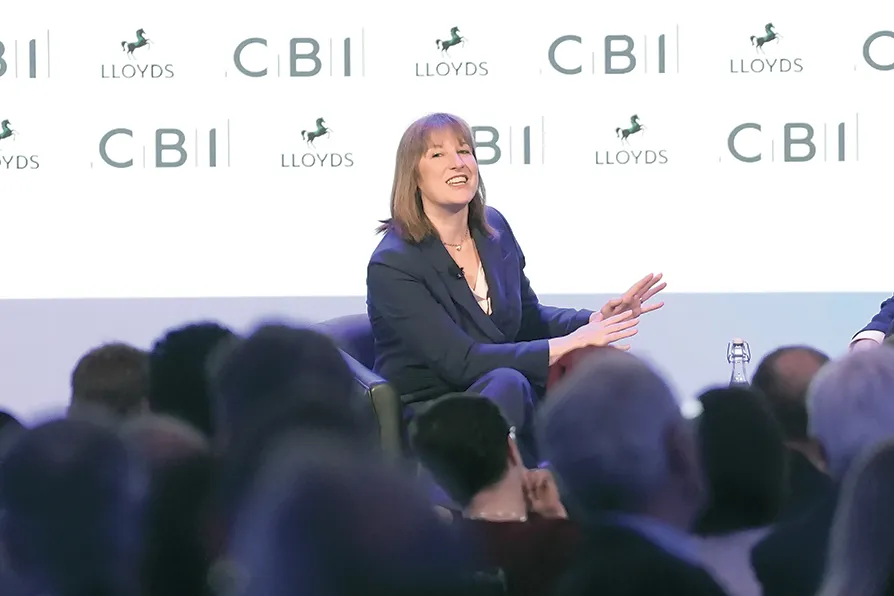John Wojcik pays tribute to a black US activist who spent six decades at the forefront of struggles for voting rights, economic justice and peace – reshaping US politics and inspiring movements worldwide
The British economy is failing to deliver for ordinary people. With the upcoming Spending Review, Labour has the opportunity to chart a different course – but will it do so, asks JON TRICKETT MP

 PLAYING TO THE GALLERY: Chancellor of the Exchequer Rachel Reeves at the CBI National Business Dinner 2025 on June 5 2025
PLAYING TO THE GALLERY: Chancellor of the Exchequer Rachel Reeves at the CBI National Business Dinner 2025 on June 5 2025
BRITAIN stands at a crossroads. After 14 years of austerity, cuts, stagnating wages and deepening inequality, the Labour government faces a stark choice: continue down the road of managed decline — or chart a new path of prosperity.
Even the voices of those unimaginative keepers of the faith in stale economic orthodoxy sound a little apprehensive.
The Institute for Fiscal Studies (IFS) has made it clear that “tough public spending choices” are coming. Unless a change in direction is embraced, they say, the government will once again slash “unprotected” departments — everything outside health, defence and schools. Meanwhile the Organisation for Economic Co-operation and Development (OECD) has once again cut its forecasts for British economic growth.
Indeed so worried is the OECD it thinks the Chancellor ought to be raising taxes. It argues that Labour ought to adjust council tax levels.
Interestingly it also suggests we raise money by tackling tax evasion and avoidance.
Chancellor Rachel Reeves’s refusal to borrow more or raise taxes locks Britain into a fatalistic logic. Meanwhile the other priest of old-fashioned economic orthodoxy at the Bank of England carries on regardless, taking money out of the economy (fiscal tightening) and maintaining unnecessarily high interest rates.
With no sign of economic growth on the horizon, further cuts are inevitable. This would be a profound mistake. Our public services are already cut to the bone. Councils are going bankrupt. Libraries, youth centres and transport links — vital threads in our social fabric — are crumbling.
But wait a minute, you might say. The government has found billions to boost the defence budget. Why is there always money for weapons, but not for the services that keep our communities safe and supported? What working people need is not more militarisation, but a functioning welfare state, good jobs and affordable housing.
The British economy is failing to deliver for ordinary people. Average wages today are no higher than they were in 2008. We are still mired in a cost-of-living crisis. Prices have soared while pay has failed to keep up.
Yet we live in one of the richest countries in the world. Recent figures show the UK financial sector was valued at £17 trillion. More than half of that belonged to the banks and the Bank of England on its own was valued at £1trn.
Meanwhile the London Stock Exchange was valued at £4.65trn.
These are staggering figures. They dwarf our country’s total economic output, which stands at about £2.5trn. Is it possible that a chancellor who was not trapped in an old economic model could find ways to mobilise this capital to produce growth and social inclusion?
They could also look at the Treasury income lost annually as a result of cheating, avoidance and evasion. This “tax gap” is the difference between the amount of tax that should, in theory, be paid to HM Revenue & Customs, and what is actually paid.
The amount lost is about £40 billion in a year. Enough to avoid cutting welfare benefits eight times over.
Tax Justice UK recently identified seven tax loopholes which could be closed easily and raise £7bn per year.
Meanwhile the Tax Justice Network produced evidence showing that countries across the world are losing £364bn in tax a year to multinational corporations and wealthy individuals using tax havens to underpay tax.
Eight countries vetoed a global agreement to tackle this scandal. One of those countries was Britain.
We need a new economic settlement. It should be built on the principles of equality and social justice. It should involve new models of public ownership and democratic planning.
We need a wealth tax to ensure the richest pay their fair share. We need price controls to tackle runaway costs in essentials like energy, rent and food.
We need a state-led industrial strategy to revive British manufacturing, create well-paid, trade union jobs, and adapt to climate change. Services must be properly resourced, insourced and publicly owned — run for people, not profit.
And we need bold investment in Britain’s held-back regions and nations.
We cannot cut our way to prosperity.
We must build a new economy that serves the working class, not the super-rich. The people are restless for change.
The Labour government must deliver this, or it will face consequences from the electorate.
Jon Trickett is Labour MP for Normanton and Hemsworth.









